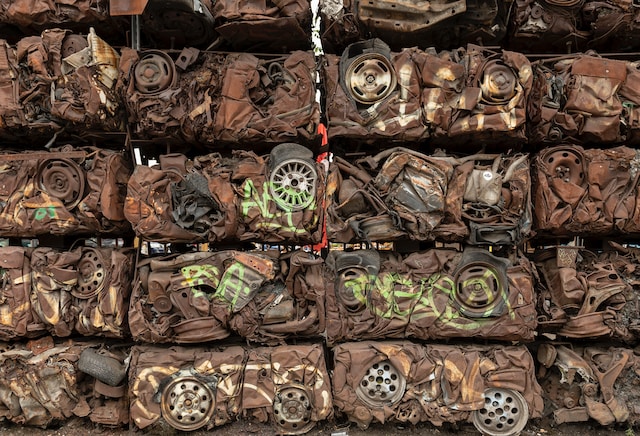
Not recycled metals end up in landfills, where they corrode and release toxins. These toxins can pollute soil and water, negatively impacting natural animal and plant habitats. Recycling scrap metal, however, eliminates greenhouse gas emissions and cuts energy use. It lessens the need for raw materials and conserves natural resources.
Eliminates Toxins
Metal doesn’t belong in landfills, where it can contaminate nearby soil and water supplies. As they decompose in landfills, metals release toxins harmful to plants and animals, which can enter the air we breathe when it rains. Scrap metal recycling keeps metals out of landfills, which helps to protect the environment and keep our air clean.
When manufacturers use recycled metals, they refrain from paying for the high cost of mining new raw materials. It also reduces the use of chemicals and fossil fuels in production. One ton of recycled aluminum uses 95% less energy than manufacturing aluminum from raw materials.
Many individuals and businesses have copper piping, brass fixtures, or steel beams that could be given a second life. But too frequently, they are thrown away and wind up in landfills, contaminating surrounding water and soil supplies and hurting the environment. By working with a reputable scrap metal recycler, consumers and companies can prevent this by ensuring their metals are recycled rather than in the trash.
Reduces Greenhouse Gas Emissions
The atmosphere warms due to heat being trapped in the high concentration of greenhouse gases. Recycling scrap metal lowers the quantity of greenhouse gases released into the atmosphere by lowering the need for new materials. During World War II, scrap metal was widely collected and melted down to be reused to make tanks, ships, and weapons used in the war. It was done because it saved the energy that would have been required to extract raw metal materials from the earth.
When the metal is incinerated or sent to landfill sites, it releases toxic chemicals into the air that can pollute the surrounding environment. These toxins can leach into soil or water, and some, like lead and mercury, are dangerous to humans. When the scrap metal is recycled, it eliminates the need for these toxins and saves natural resources like chromium, copper, silver, and gold that can’t be easily replaced.
Saves Energy
The process of producing metals from raw materials requires a lot of energy. It’s a top contributor to global climate change. Recycling scrap metal eliminates the need for this energy-intensive extraction procedure, which cuts greenhouse gas emissions and conserves natural resources. Metal can contaminate the land and water supplies when disposed of in landfills. These toxins can harm plants, animals, and people. The only way to avoid this is by ensuring that scrap metal is recycled instead of dumped into landfills. While recycling may seem like a small part of the more significant sustainability effort, it is essential. Besides the environmental benefits, it also boosts the local economy by providing jobs. However, if you want to ensure that your scrap metal goes to an environmentally friendly recycler, remember that compliance with environmental regulations can be expensive. These costs must be passed on to consumers.
Saves Natural Resources
Recycling metal helps preserve raw materials such as fossil fuels and other materials that can be used to create new products, which is a great way to minimize the consumption of natural resources. The quantity of waste in landfills is decreased by lowering the need to mine new metals. Landfills are incredibly harmful to the environment, taking years to break down, and often leach toxic chemicals into surrounding soil and water supplies.
Furthermore, the process of recycling metals is very energy-efficient. Recycling metals requires far less energy than manufacturing new products with virgin raw materials. For example, recycling a single aluminum can save enough energy to power a 100-watt light bulb for four hours! As a result, this energy savings helps reduce greenhouse gas emissions and lowers production costs for manufacturers. In turn, these cost savings are passed on to consumers.